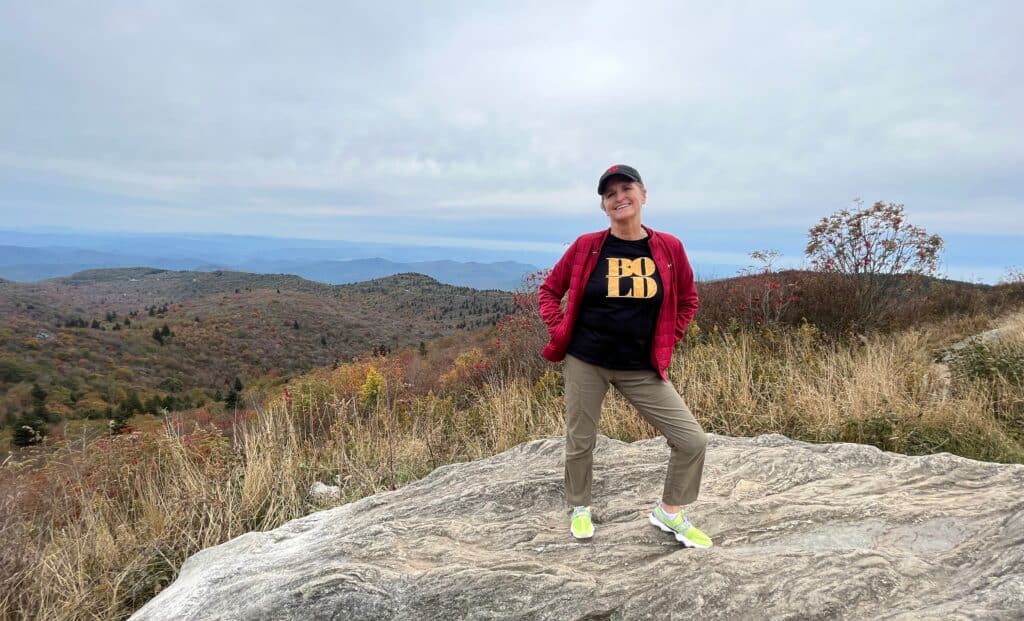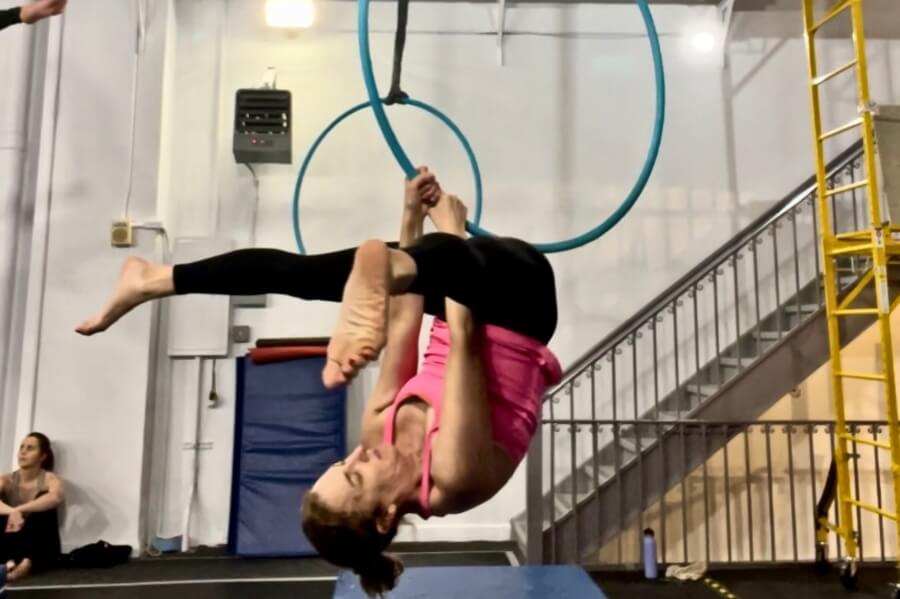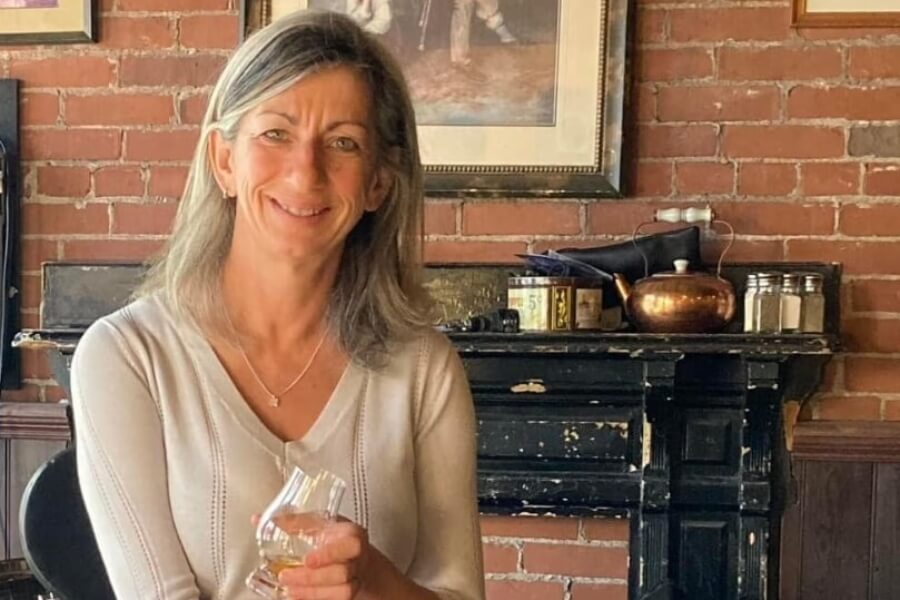I was walking down a busy New York City street recently when I saw something that punched me in the gut: a young woman in her early 20s looking for a taxi and lugging a large black artist’s portfolio. There was nothing about her that should have caused such a reaction, except that she could have been my daughter Becca. Should have been my daughter Becca. Becca heading off for an interview to be a graphic designer somewhere—at a progressive political organization or a socially-conscious company. If only. If only.
You grieve for the loss of the future you expected for them, for the things that will never be.
So many if-onlys. If only her father hadn’t died suddenly when she was 13, such an open-wound age under even the best of circumstances. If only I hadn’t floundered so much in dealing with her spinning skid into depression and anxiety. If only she’d been at a school that didn’t treat kids with different, difficult personalities as delinquents. If only I’d managed to find her such a school. God knows I put hours into trying to figure that out. If only, if only.
There’s a special kind of grief you feel when you have a child with mental health issues. You constantly bump up against a sense of loss for what isn’t there in the present, and for all that might have been. You grieve for the loss of the future you expected for them, for the things that will never be.
Getting Her Off the Sofa

“We had to fight to uncurl her from the couch.” Image: Gregory Pappas/Unsplash
In those high school years after her dad died, there were so many mornings when I looked out the window at the kids walking toward school, lugging their books, bumping against each other and shrieking with laughter at things on their phones. I wanted that for her—I ached for it. And then I’d turn around and spend an hour trying to cajole/nag/bargain/push her to uncurl herself from a fetal position on the couch and go to school.
Sometimes she went; sometimes I had to leave her there and go to work. There were psychiatrists, therapists, meds, different meds. She was officially diagnosed with severe clinical depression and anxiety, and I carefully doled out her medications. And still, most mornings, we had to fight to uncurl her from the couch.
I hated—I admit it—hearing about friends’ kids, their debate team wins, their science fair projects, their normal lives. I wanted that. I hated the innocent question: What are your kids up to these days? I hated that I ducked the question, answered vaguely, changed the subject.
I’m a natural optimist, and on the good(ish) days, I’d think, It’s getting better! There’s a phrase for this that I heard in the support group I go to at the National Alliance for Mental Illness: Hoping against hope. It’s a stage that family and friends go through, and the first time I heard that, there was a clank of recognition in my brain. I have spent so much time—so many years, really—in that stage. Hoping that this day will be better than the last, or that because she got an A on the first paper, she’ll hand in the second, or that in this job, she won’t implode in a few days/weeks/months and quit.
Read More: When Grown Sisters Don’t Get Along
Grown Child Disappointment: Adjusting Expectations
When you have a child with mental health issues, you learn to adjust your expectations. From a young age, Becca had such a talent for combining words and art with a sly and edgy humor; back then, I imagined her working for an alternative magazine or doing subversive ad campaigns for enlightened companies. But I realized she wasn’t going to join the staff of the high school literary magazine, though her writing pulsed with emotion. She wasn’t going to take the school’s college-level art class, though the art teacher pushed her to and hung her angry, vivid art in his classroom.
So I had to celebrate what she would do. She wasn’t going to run for student government and fight for the things she thought her school should do better. But when she saw a poster in the hallway for a self-defense class for girls, she designed a poster of her own and hung it underneath: “Instead of teaching girls how not to get raped, shouldn’t you be teaching boys not to rape?” That got her a trip to the principal’s office—and the principal got a call and lecture from me.
The school finally, halfway through her junior year, put her into a program where they shoved the kids they’d written off, and there she began to uncurl a bit under the care of a wonderful social worker and the program’s director, who saw so much promise in her, who encouraged that passion and talent for art and words. When she wrote a long, wrenching, emotionally-howling poem about her dad’s death, he didn’t send her to the school shrink—he told her to read it at the school’s poetry slam. And she did: She stood up in front of the polo-shirted dads and blonde-bob moms and their kids who all dressed alike, with her purple hair and ripped everything, and held the mike with shaking hands.
In her senior year, when I thought that she’d only be able to handle the local community college, even though the expectation in my extended family is that everyone goes to a four-year school, that program director encouraged her (and me) to set our sights higher.
Read More: They’re Still Here: What to do When A Grown Child Won’t Leave Home
The Uncertain Future
I take no solace in the fact that I was right—it was too much for her. She will always have this: that out of 1,000 applicants for a particularly competitive school of art and design, she was one of 40 who got in on the strength of that angry, vivid artwork. And she’ll always have this: that she, as she put it, couldn’t hack it, blew it, lost that opportunity.
I still brace myself against that question, How are your kids?, when I run into people I haven’t seen in a while.
Living with a kid with mental health issues often means letting go of the future you’d always assumed would come. It means accepting what the kid can do, rather than what you’d hoped they would do. It means acknowledging that almost every day will be a struggle, that many people won’t understand why she doesn’t just “get going and do something,” and that much of the time, you don’t know the right thing to do.
Becca ended up at the community college, finding some success, and still blowing some of the chances. She’s 20 now, living at home, taking time away from school while she applies for retail jobs and attends a half-day therapy program—the very good psychiatrist there diagnosed her with bipolar disorder, which clarified so many things. Every day she wakes up with a storm in her brain, and somehow finds the strength to get out of bed.
I still brace myself against that question, How are your kids?, when I run into people I haven’t seen in a while. Most of the time, I don’t duck it anymore. “Becca has mental health issues,” I say, as matter-of-factly as I can. “It’s a struggle, but she’s making her way.” And always, always, they’re sympathetic. I try to focus on the now and not worry too much about how she’ll make her way in the world. But I do worry about that, of course.
Living with a kid with mental health issues means cutting yourself slack for all the mistakes you’ve made, for the things you haven’t figured out. I’m working on that.
A version of this article was originally published in May 2017





















0 Comments